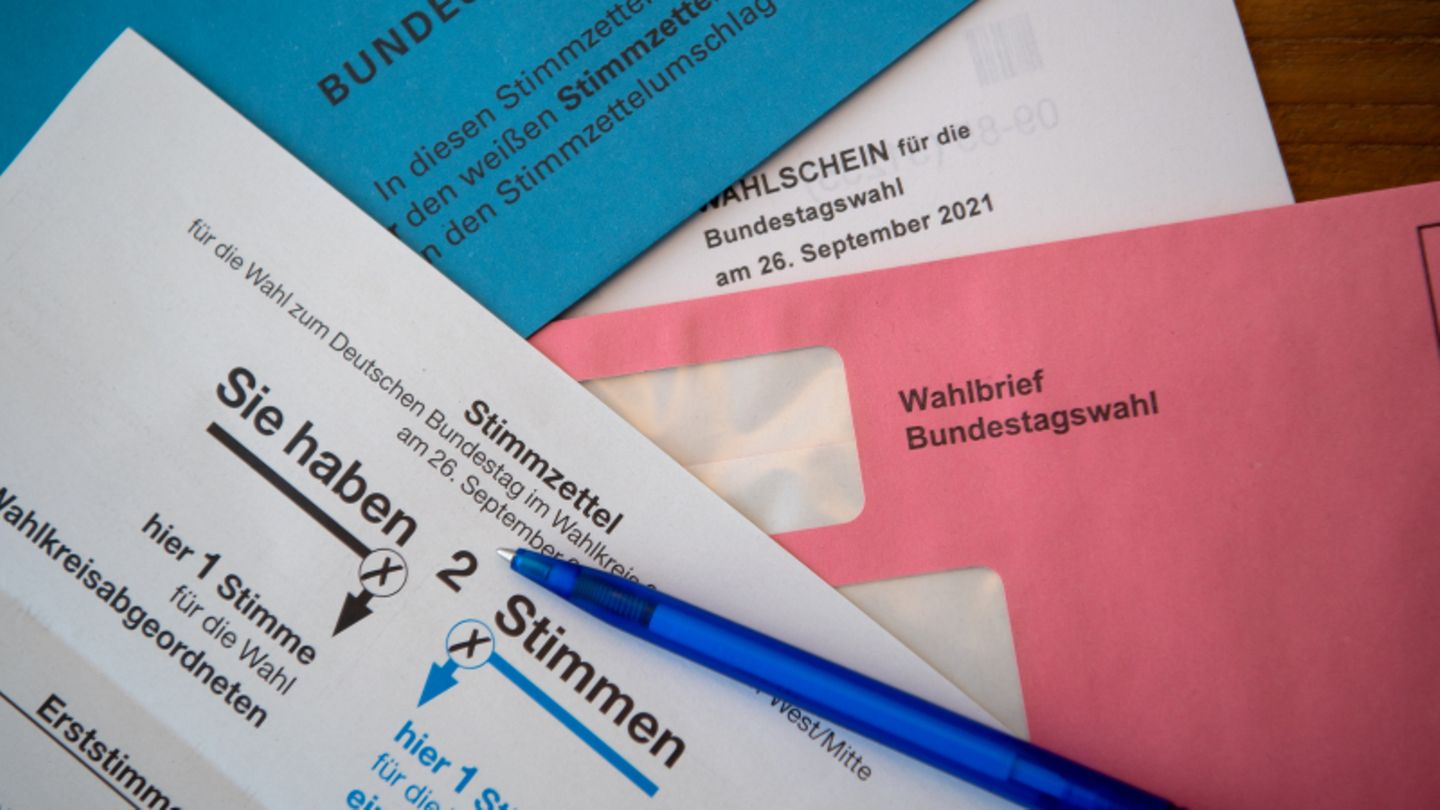In ten days the German population will elect a new Bundestag and appoint a new Federal Chancellor: in. But even before the first polling stations open, the first conspiracy theorists are doubting the legitimacy of the election result.
Since the presidential election in the USA at the latest, the specter of a supposedly rigged federal election has been conjured up in dark corners of the Internet – and it is increasingly reaching the nice neighbors or the sports club’s Whatsapp group. A good week before the vote on September 26, the misinformation is noticeably picking up speed.
There is a lot of rumor: postal voting documents are sent to voters without being asked; Ballot papers punched in one corner are invalid; if the voter turnout is less than 50 percent, voting is illegal; or polling stations only allowed vaccinated and convalescent access. Everything is nonsense, everything is a lie.
A lot of hustle and bustle around the postal vote
Particularly in focus: the postal vote. From AfD politicians who want to be elected to parliament themselves, one can hear, for example: votes for their party were deliberately lost in the mail. A completely illogical charge. Because the ballot papers are only removed from the envelopes on the evening of the election; beforehand it is not possible to tell with which party the cross was made.
There have been “rare individual cases” in past elections in which a few postal voting documents were inadvertently not delivered to the polling station, according to Federal Returning Officer Georg Thiel. “We are not aware of any deliberate cases,” said his office at the request of the German Press Agency.
Fake news spreads on social media
Disinformation enters the world primarily through unregulated social media such as the Telegram messenger service. “Telegram is currently the platform for right-wing extremists and conspiracy ideologues,” says political scientist Josef Holnburger. He is a data scientist and one of the managing directors of the Center for Monitoring, Analysis and Strategy (CeMAS), which, among other things, observes disinformation and radicalization tendencies in social media.
What is spreading very widely on Telegram will soon also dominate the conspiracy ideological scene, according to Holnburger. The lies spill over to other social media and suddenly end up in the uncle’s Facebook group or on mum’s Whatsapp.
An example: It is claimed that postal voting documents are currently being sent nationwide without those eligible to vote having requested this – including “in half of Hamburg”. That is a criminal offense. And whoever takes part in the election is a criminal.
But that’s not true at all. From the regional election officer of the Hanseatic city, Oliver Rudolf, it is said: There is “no knowledge that unanswered postal voting documents will be sent”. Federal Returning Officer Thiel is also “no known cases” throughout Germany. Both authorities are watching over the orderly electoral process.
Corrections are often not accepted
Such clarifications, however, fizzle out in conspiracy circles. Either they do not receive the statements at all or do not allow them to apply in principle. Because a certain part of them rejects the political system and its organs – for example the so-called Reichsbürger, who deny the existence of the Federal Republic as a sovereign state.
In contrast to Facebook, Youtube and Twitter, posts on Telegram are largely unregulated and distributed without opposing positions. While social media are actually supposed to provoke interactions in the community, Telegram is mostly a mouthpiece in German-speaking countries without any objection. Holnburger calls it a “fairly large echo chamber”, “into which one speaks and hears confirmation”.
Therefore, the outrageous statement remains in the room that by participating in the election you make yourself a criminal. Because even if an (attempted) forgery in the postal vote (which could at least lead to up to five years imprisonment) is detected somewhere in Germany, that does not make the whole vote illegal – let alone all those criminals who cast their votes regularly.
Voters should be kept away from the ballot box
But what is the point of all these lies? To keep voters away from the ballot box and to deny legitimacy to the entire election. “The story that all politicians are bad,” says Holnburger. “This is of course a conspiracy-ideological narrative in which a group is chosen as the absolute villain.” This wants to bring about everything that is illegitimate – including election fraud.
According to CeMAS studies, the US presidential election in particular shows how mobilization on the Internet can become a real danger. After Biden’s victory in November 2020, the news about election fraud in public Telegram groups and channels soared. “The permanent repetition of false claims in combination with the mobilization against postal votes as a vehicle for alleged electoral fraud culminated there in the storming of the Capitol in January 2021,” the analysts say.
Postal voting found to be constitutional
Postal voting as a gateway to fraud? The Federal Constitutional Court sees the danger that it is difficult to check whether a ballot paper is filled out at home without being influenced. On the other hand, as many people as possible can vote – including those who have to work or whose mobility is restricted. So it is a matter of weighing up. Karlsruhe has repeatedly viewed postal voting as constitutional.
Because, for example, people vote more often by post in the city than in the country, or because more progressive people use the instrument than conservative ones, the results of voting by post and ballot box can be very different. But conspiracy ideologues could not or would not understand this, says Holnburger. And with that they sowed doubts. One tries to destroy a democratically legitimized election and to erode the trust in it. “That is dangerous for our democracy as a whole.”
And after the election? “Regardless of the outcome, the people in this scene do not feel represented by the politicians who are elected,” said the scientist. He expects the issue of electoral fraud to become really big then. Showdown is on September 26th.
See in the video: On September 26th, voters in Germany will elect a new Bundestag. More and more people are choosing to vote by mail. Answers to the most important questions.
David William is a talented author who has made a name for himself in the world of writing. He is a professional author who writes on a wide range of topics, from general interest to opinion news. David is currently working as a writer at 24 hours worlds where he brings his unique perspective and in-depth research to his articles, making them both informative and engaging.




